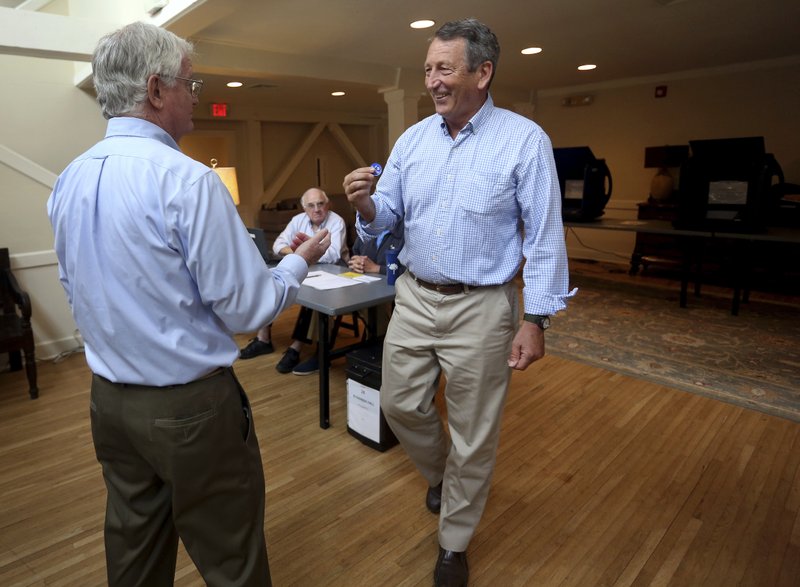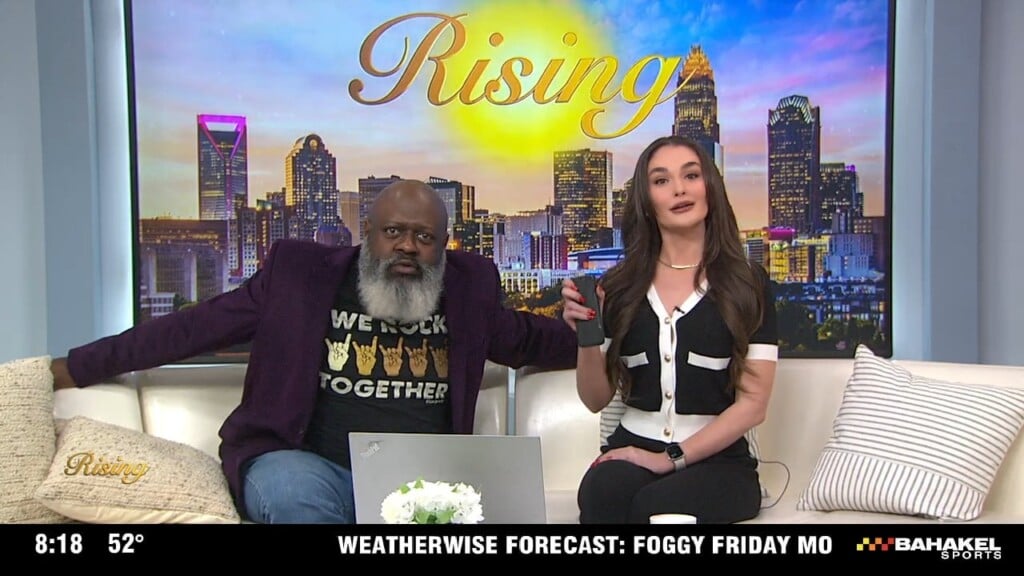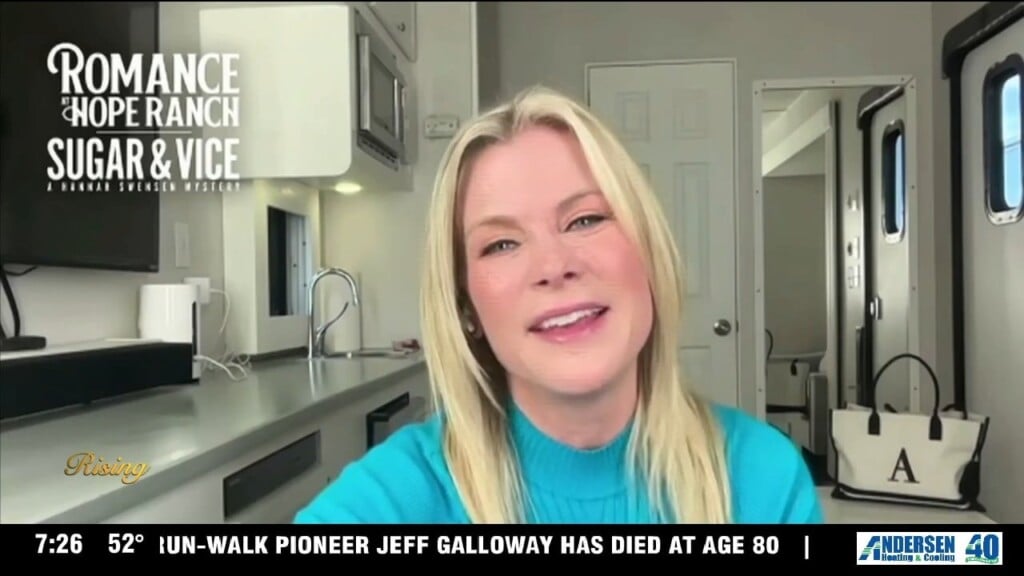A bellwether Virginia congressional district promises to be among the most watched races nationally in primary elections in nearly every region of the country Tuesday.
President Donald Trump also will be a factor, notably in two Republican primaries in South Carolina.
South Carolina Gov. Henry McMaster has the president’s backing but faces challenges from four other candidates. Republican Rep. Mark Sanford faces a challenge from a state lawmaker painting the outspoken former governor as insufficiently loyal to the president.
Elections are also scheduled in Maine, Nevada and North Dakota. Together, they raise to 21 the number of states having held their 2018 primary elections so far.
TRUMP LOOMS OVER SOUTH CAROLINA RACES
Trump reiterated his “full endorsement” of McMaster on Twitter over the weekend, praising the longtime Republican figure in the state for being “with me from the beginning.” He retweeted that endorsement Tuesday.
Although Trump remains very popular in South Carolina, McMaster has been shadowed by a corruption probe involving a longtime political consultant. McMaster assumed the governorship last year after Nikki Haley resigned to become U.S. ambassador to the United Nations.
McMaster has led the GOP field but in recent surveys has struggled to receive support from the 50 percent of voters he’d need to avoid a runoff.
Meanwhile, in South Carolina’s 1st Congressional District around Charleston, state Rep. Katie Arrington is airing a television advertisement that refers to Sanford as a “Never Trumper” and features video clips of Sanford’s Trump criticisms.
Sanford has described Trump as untrustworthy and culturally intolerant. He repeatedly has called for the president to release his tax returns. Trump tweeted Tuesday that Sanford was “nothing but trouble” and was “better off in Argentina.”
Sanford, who resigned as governor in 2011 after admitting to an extramarital affair with an Argentine woman, staged a political comeback in 2013, winning the House seat in the district he had earlier represented for six years.
A HOUSE BELLWETHER IN VIRGINIA
The northern Virginia suburbs are home to primaries in a congressional district viewed as key to both parties’ fight for control of the House.
In Virginia’s 10th District, Republican Rep. Barbara Comstock is one of Democrats’ top targets in November. The second-term House member’s district leans Republican, though Democrat Hillary Clinton received more votes there than Trump did in 2016.
Comstock faces retired Air Force veteran Shak Hill, who has criticized her for voting last year against a measure to repeal the 2010 Affordable Care Act. Comstock is favored, but the challenge by Hill could push the more moderate Comstock to the right.
The six-person Democratic field is creating a free-for-all, given Virginia’s system that rewards the highest vote-getter without a runoff.
It will be another test of whether Democratic primary voters in swing districts prefer more liberal candidates, as they’ve shown in several races so far this year. The party needs to gain 23 seats to win the majority in the House.
State Sen. Jennifer Wexton began the 2018 cycle as the establishment favorite. But three other competitors have kept pace or even exceeded her fundraising and spending, while two others have mounted credible campaigns.
TURNING THE LePAGE
Maine voters will decide how they’d prefer to veer in their search for the successor to term-limited, conservative Republican Gov. Paul LePage.
In a state represented by moderate Republican Sen. Susan Collins and independent Sen. Angus King, voters will choose from GOP candidates who echo LePage’s conservative policies but shy away from his controversial tone.
The field includes top Republicans in the state legislature, Senate Majority Leader Garrett Mason and House Minority Leader Kenneth Fredette; LePage’s former state health agency chief, Mary Mayhew; and businessman Shawn Moody, who’s trying to claim the outsider mantle.
Democrats, with just 16 of the nation’s governorships, view the seat as one of their top pick-up opportunities.
First they must settle a seven-way primary field led by Attorney General Janet Mills and former state House Speaker Mark Eves.
NEVADA, NORTH DAKOTA: SEE YOU IN NOVEMBER
Nevada and North Dakota are home to two of the most pivotal Senate races this year. What they don’t have is competitive Senate primaries.
Nevada Sen. Dean Heller, the only Republican seeking re-election in a state that Hillary Clinton carried in 2016, and Democratic Rep. Jacky Rosen are expected to sail through their primaries, and already have begun focusing their criticism on each other in what is expected to be among the most competitive Senate races this year.
One of the most interesting GOP primaries in Nevada involves legal brothel owner Dennis Hof challenging GOP state Rep. James Oscarson for his seat in the statehouse.
There’s also the return of Sharron Angle, the conservative who once ominously threatened to “take out” then-Sen. Harry Reid. Angle, who lost to Reid in her 2010 bid for Senate, is challenging Rep. Mark Amodei, who is favored in his campaign for renomination in Nevada’s 2nd District.
The most competitive choice for Democrats appears to be the battle between Clark County commissioners vying to be Nevada’s first Democratic governor in two decades.
Steve Sisolak is running as a centrist, and fellow board member Chris Giunchigliani is running as a progressive, knocking Sisolak for his positive rating from the National Rifle Association in light of the mass shooting in Las Vegas in October. Four lesser-known candidates are also running.
Republican Attorney Gen. Adam Laxalt is expected to easily clear the GOP field.
In North Dakota, GOP Rep. Kevin Cramer is a shoo-in to face moderate Democratic Sen. Heidi Heitkamp. She is seeking re-election in a state Trump carried by 36 percentage points in 2016.




